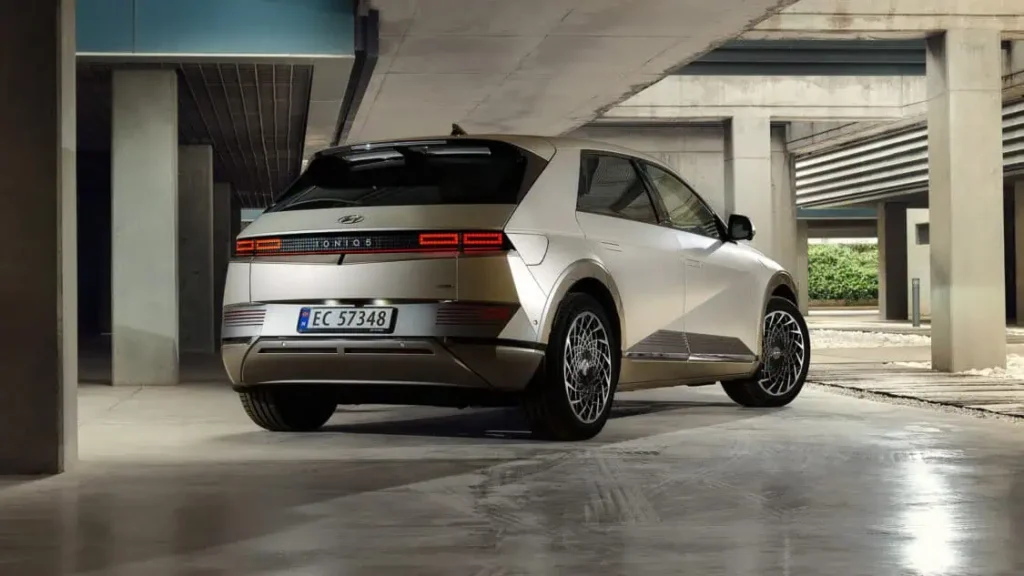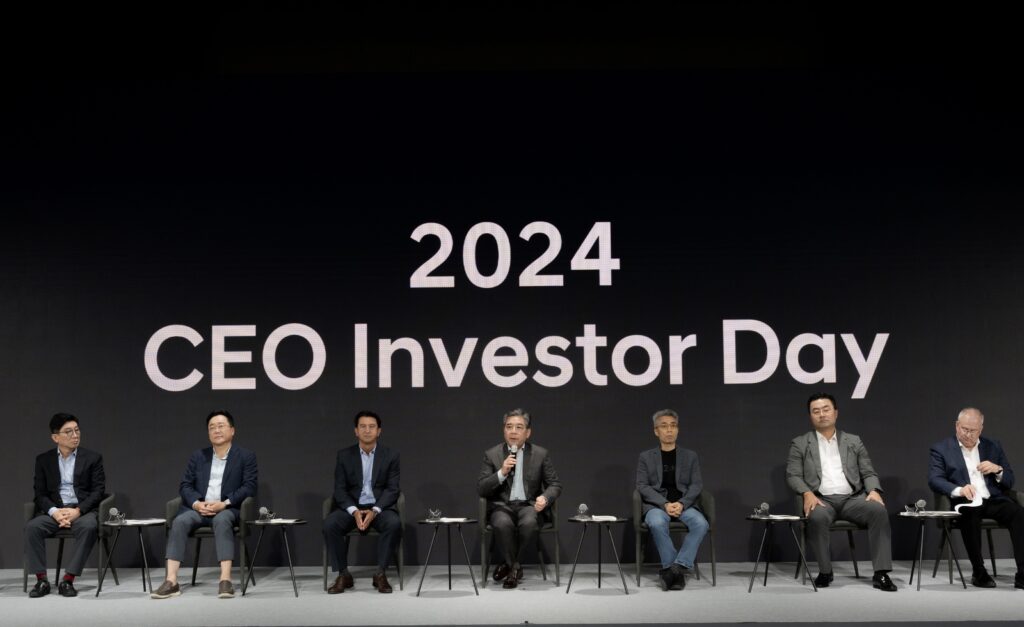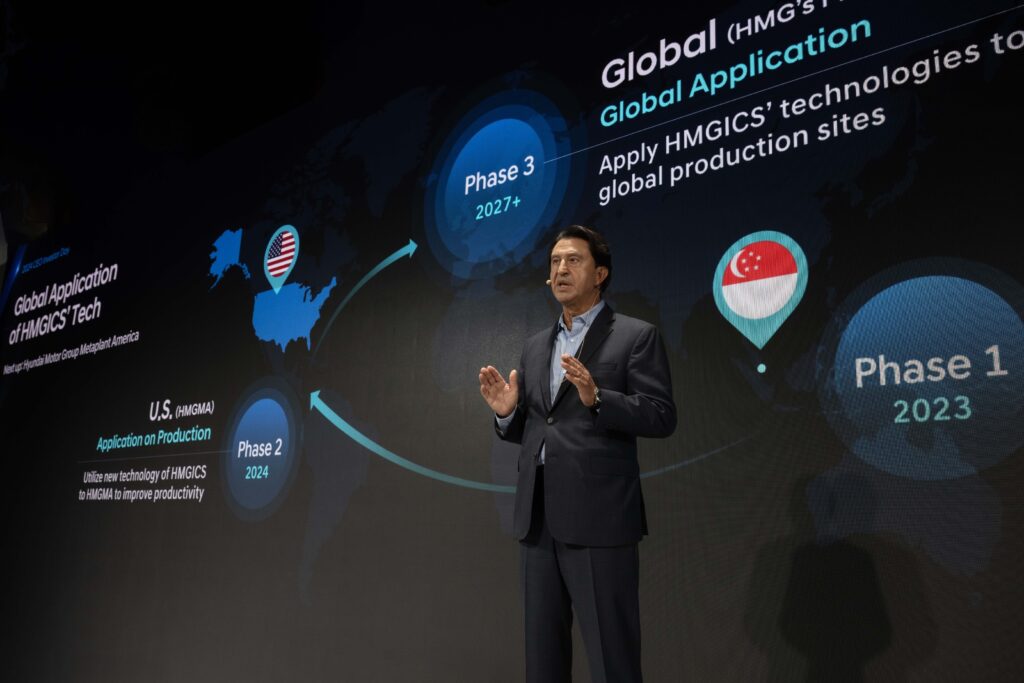Hyundai Motor Unveils New ‘Hyundai Way’ Strategy and Outlines Mid- to Long-Term Goals
On August 28, 2024, Hyundai Motor Company held its 2024 CEO Investor Day in Seoul, where it introduced a new mid- to long-term strategy called the ‘Hyundai Way.’ This strategy outlines Hyundai’s vision and roadmap for the coming years as the company continues to evolve in the rapidly changing automotive industry.
The ‘Hyundai Way’ focuses on several key areas, including accelerating the transition to electric vehicles (EVs), expanding the company’s presence in the global EV market, and enhancing its technological capabilities. The strategy also emphasizes Hyundai’s commitment to sustainability, innovation, and customer satisfaction, as the company aims to lead the industry in clean mobility solutions.

In addition to expanding its EV lineup and production capacity, Hyundai plans to invest heavily in next-generation technologies, including autonomous driving, connectivity, and artificial intelligence. The ‘Hyundai Way’ represents the company’s comprehensive approach to achieving its long-term goals, positioning itself as a leader in the future of mobility.
This event provided investors with insights into Hyundai’s strategic direction and how the company plans to navigate the challenges and opportunities in the automotive sector over the next decade.

During Hyundai Motor Company’s 2024 CEO Investor Day, the company provided further details on its ‘Hyundai Way’ strategy, highlighting a flexible approach to adapting to market conditions while focusing heavily on electrification. The key objectives of this strategy are ambitious and aim to position Hyundai as a dominant player in the global automotive market by 2030.
Key Targets and Goals
Hyundai is targeting 5.55 million annual global vehicle sales by 2030, which represents a 30% increase from its sales in 2023.
Extended-Range Electric Vehicles (EREVs)
Hyundai plans to introduce new Extended-Range Electric Vehicles (EREVs) in North America and China. These vehicles are a new type of EV capable of exceeding 900 km (approximately 559 miles) on a single charge, significantly enhancing range and appeal to long-distance drivers.
Expanding EV Market Share
Hyundai Motor Company is taking ambitious steps to solidify its position as a leading global player in the electric vehicle (EV) market. By 2030, Hyundai plans to offer a full lineup of 21 EV models. This range will cover various market segments, from affordable options to luxury and high-performance vehicles.
To achieve its sales targets, Hyundai Motor will open the Hyundai Motor Group Metaplant America (HMGMA) in Georgia ahead of schedule in 2024, and a dedicated EV factory in Ulsan by 2026, adding a production capacity of 500,000 units.
The company aims to sell 2 million EVs annually by 2030, reflecting its strong commitment to electrification.
Hybrid System Enhancements, Increased Number of Hybrids
Hyundai is also focusing on enhancing its hybrid offerings. The company will introduce an improved hybrid system that delivers better performance and fuel efficiency.
The number of Hyundai’s hybrid electric vehicle (HEV) offerings will expand from the current seven models to 14 by 2030. The Genesis luxury brand, a subsidiary of Hyundai, will also see the introduction of hybrid models as part of this expansion.

Battery Technology and Safety
Hyundai is committed to advancing its battery technology by developing affordable Nickel Cobalt Manganese (NCM) batteries, which are known for their high energy density and cost-effectiveness. The company will also focus on enhancing battery safety technology to ensure the reliability and longevity of its electric vehicles (EVs).
Autonomous Driving and Hydrogen Technology
Hyundai plans to commercialize its autonomous driving vehicle foundry business. The company aims to supply autonomous vehicles to global firms specializing in autonomous driving software, further integrating itself into the autonomous driving ecosystem. Hyundai is targeting top-tier energy leadership during the energy transition by bolstering its hydrogen technology capabilities across the entire value chain. This includes production, storage, and utilization of hydrogen as a clean energy source.
Investment and Financial Strategy
Hyundai plans to invest KRW 120.5 trillion (approximately USD 91 billion) through 2033 to support the execution of the ‘Hyundai Way’ strategy. This substantial investment will fund various initiatives, including technology development, production expansion, and market growth. The company has set a new target shareholder return (TSR) of over 35% and plans to implement a share buyback scheme amounting to up to KRW 4 trillion (about USD 3 billion) from 2025 to 2027. This move is aimed at enhancing shareholder value and demonstrating confidence in Hyundai’s long-term growth prospects.
In 2024, Hyundai Motor achieved significant milestones that underscore its strong market position and competitive edge in the electric vehicle (EV) sector. Hyundai Motor earned an ‘A-grade’ credit rating from major global credit rating agencies, reflecting its robust financial health and stable outlook. The company achieved a global sales volume of 4.21 million units in 2023. This substantial performance contributed to Hyundai Motor Group’s ascent to become one of the top three automakers globally.

Electric Vehicle Marketing Consultant, Writer and Editor. Publisher EVinfo.net.
Services